
Find Help
More Items From Ergsy search
-

Can Ozempic lead to dehydration?
Relevance: 100%
-

What problems is Ozempic known to cause?
Relevance: 59%
-
What happens if I overdose on Ozempic?
Relevance: 57%
-

Can Ozempic cause severe gastrointestinal issues?
Relevance: 56%
-

What are the side effects of Ozempic?
Relevance: 54%
-

What are common side effects of Ozempic?
Relevance: 53%
-

What is Ozempic?
Relevance: 53%
-

What is Ozempic?
Relevance: 53%
-

Are there any serious risks associated with Ozempic?
Relevance: 53%
-
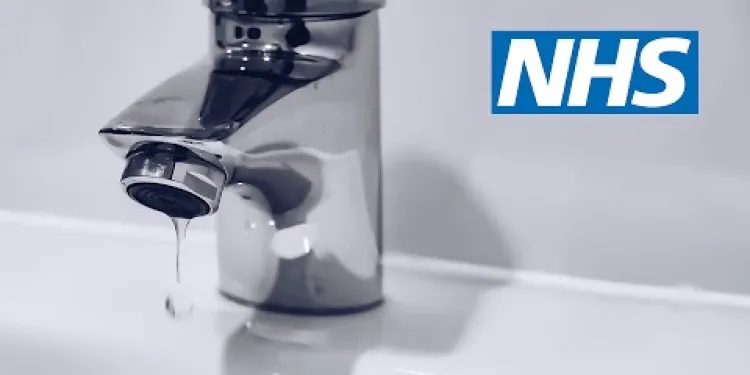
How to prevent dehydration | NHS
Relevance: 52%
-

Is Ozempic a form of insulin?
Relevance: 51%
-

Do I need a prescription for Ozempic?
Relevance: 51%
-

How is Ozempic administered?
Relevance: 50%
-

How is Ozempic administered?
Relevance: 49%
-

Can Ozempic be taken with food?
Relevance: 49%
-

Can Ozempic cause serious side effects?
Relevance: 49%
-

How does Ozempic work?
Relevance: 49%
-

How should Ozempic be stored?
Relevance: 49%
-

Who should not take Ozempic?
Relevance: 49%
-

Does insurance cover Ozempic?
Relevance: 49%
-

Is Ozempic suitable for type 1 diabetes?
Relevance: 48%
-

Is Ozempic safe for everyone to use?
Relevance: 48%
-

Is nausea a frequent side effect of Ozempic?
Relevance: 48%
-

Can Ozempic affect vision?
Relevance: 48%
-
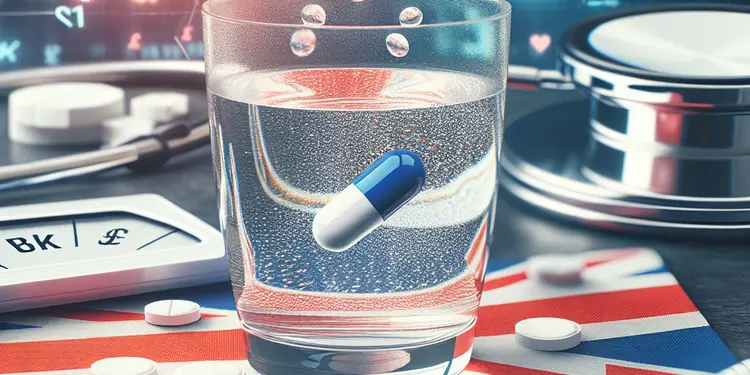
Can weight loss drugs cause dehydration?
Relevance: 48%
-
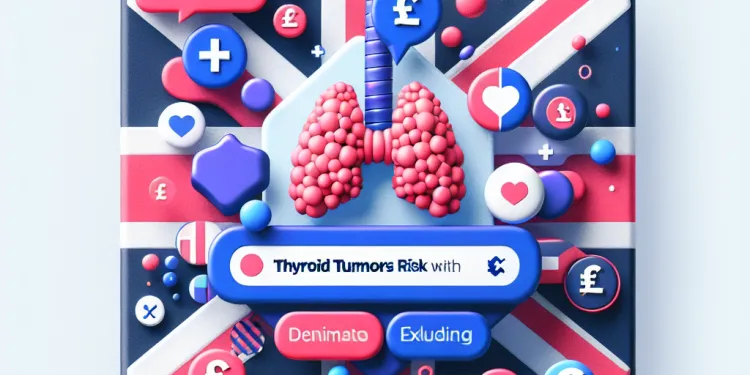
Is there a risk of thyroid tumors with Ozempic?
Relevance: 48%
-

What are the common side effects of Ozempic?
Relevance: 47%
-

Can Ozempic be used for weight loss?
Relevance: 47%
-

How often do you take Ozempic?
Relevance: 47%
-

Will insurance cover Ozempic for weight loss?
Relevance: 47%
-

How does dehydration affect gut health in the elderly?
Relevance: 47%
-

Are there any long-term effects of using Ozempic?
Relevance: 46%
-

Does Ozempic cause allergic reactions?
Relevance: 46%
-

Can Ozempic cause gallbladder problems?
Relevance: 46%
-

What should I do if I miss a dose of Ozempic?
Relevance: 45%
-
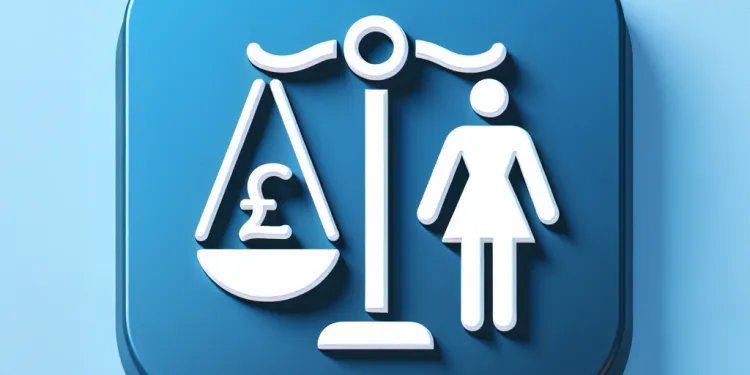
How does Ozempic help with weight loss?
Relevance: 45%
-

Can I take Ozempic with other diabetes medications?
Relevance: 45%
-
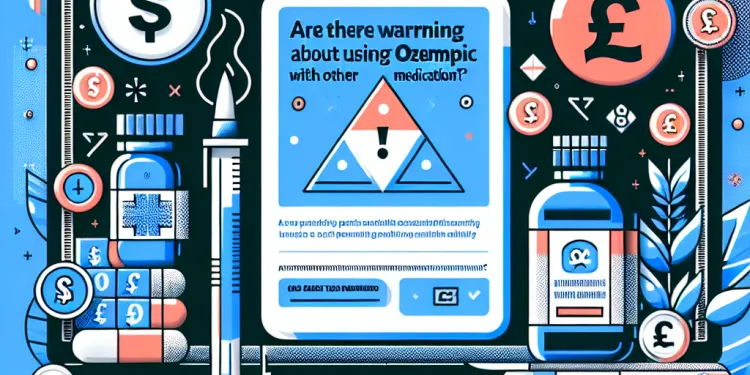
Are there warnings about using Ozempic with other medications?
Relevance: 45%
-

Does Ozempic have an impact on kidney function?
Relevance: 45%
-

How does Ozempic affect blood sugar levels?
Relevance: 45%
Understanding Ozempic
Ozempic is a medication commonly prescribed for managing type 2 diabetes. It belongs to a class of drugs known as GLP-1 receptor agonists. These drugs work by mimicking the incretin hormones that the body usually produces to stimulate insulin release in response to a meal. Besides its role in glycemic control, Ozempic has gained attention for its potential benefits in weight loss, which has made it increasingly popular among patients and healthcare providers in the UK.
Potential Side Effects of Ozempic
Like any medication, Ozempic can have side effects. Common ones include nausea, vomiting, diarrhea, abdominal pain, and decreased appetite. These gastrointestinal effects are often more pronounced when patients first start the medication or gradually increase their dose. It is these side effects that can potentially lead to dehydration if care is not taken.
How Ozempic Can Lead to Dehydration
The gastrointestinal side effects of Ozempic, particularly vomiting and diarrhea, can increase the loss of fluids and electrolytes in the body. When these fluids are not adequately replaced, dehydration can occur. Decreased appetite may also contribute to reduced fluid intake, exacerbating the risk of dehydration. Patients who are not drinking enough fluids, especially if they experience persistent vomiting or diarrhea, are at a higher risk of becoming dehydrated.
Recognising Dehydration
It is important for patients taking Ozempic to be vigilant about the signs of dehydration. These signs can include dry mouth, increased thirst, reduced urine output, dark-colored urine, fatigue, dizziness, and confusion. In severe cases, dehydration can lead to more serious health issues and requires prompt medical attention. Patients should ensure that they maintain adequate fluid intake, particularly when experiencing gastrointestinal side effects.
Preventing Dehydration While Taking Ozempic
To prevent dehydration while on Ozempic, patients are advised to stay well-hydrated by drinking plenty of fluids, especially water. It may be helpful to follow a consistent hydration schedule to ensure regular intake of fluids throughout the day. In addition, monitoring urine color can provide a quick indication of hydration status, aiming for a pale, straw-colored urine. Patients should also be mindful of their body’s signals and respond promptly to thirst or any sign of dehydration. Consulting with healthcare providers for individual advice on maintaining hydration can also be beneficial.
Conclusion
While Ozempic is an effective medication for managing type 2 diabetes and aiding in weight loss, it is important for users to be aware of the potential risk of dehydration due to its side effects. By understanding the symptoms and preventive measures, patients in the UK can effectively manage this risk, ensuring a safer and more comfortable experience while benefiting from the medication's therapeutic effects.
Understanding Ozempic
Ozempic is a medicine that helps people with type 2 diabetes. It belongs to a group of drugs called GLP-1 receptor agonists. These drugs help the body make insulin when you eat. Besides helping with diabetes, Ozempic might also help some people lose weight. That is why more people in the UK are interested in it.
Potential Side Effects of Ozempic
Ozempic can cause some side effects. Some people feel sick, throw up, have diarrhea, stomach pain, or lose their appetite. These problems usually happen when starting Ozempic or changing the dose. If you're not careful, these side effects might make you lose too much water from your body.
How Ozempic Can Lead to Dehydration
Vomiting and diarrhea from taking Ozempic can make your body lose water and important salts. If you do not drink enough water, you could become dehydrated. Not feeling hungry might make you drink less, which can increase the chance of dehydration. It is important to drink enough fluids, especially if you feel sick or have diarrhea.
Recognising Dehydration
Look out for signs of dehydration if you take Ozempic. Signs include dry mouth, feeling very thirsty, peeing less often, dark yellow pee, feeling tired, dizzy, or confused. Severe dehydration needs quick medical help. Drink enough water, especially if you have any of these signs.
Preventing Dehydration While Taking Ozempic
To avoid dehydration with Ozempic, drink lots of fluids, mainly water. Try to drink water regularly every day. Check the color of your pee; aim for a light yellow color. Pay attention to your body's signals like thirst, and drink more if you need to. Talking to your doctor can also help you stay hydrated.
Conclusion
Ozempic helps with diabetes and can help with weight loss, but it can also cause dehydration. Knowing the signs and how to avoid dehydration can help you stay safe while using Ozempic. Make sure to drink enough water and talk to a doctor if needed.
Frequently Asked Questions
What is Ozempic?
Ozempic is a prescription medication used to improve blood sugar control in adults with type 2 diabetes. It belongs to a class of drugs called GLP-1 receptor agonists.
Can Ozempic cause dehydration?
While dehydration is not a common side effect of Ozempic, it can occur, especially if the medication leads to gastrointestinal symptoms like nausea or vomiting.
What are the common side effects of Ozempic?
Common side effects of Ozempic include nausea, diarrhea, vomiting, stomach pain, and constipation.
How does Ozempic work?
Ozempic works by mimicking the effects of the hormone GLP-1, which helps lower blood sugar levels by increasing insulin release, decreasing glucagon release, and slowing gastric emptying.
Why might Ozempic lead to dehydration?
Dehydration might occur if Ozempic causes symptoms like vomiting or diarrhea, leading to loss of fluids.
What should I do if I experience dehydration symptoms on Ozempic?
If you experience symptoms of dehydration, such as excessive thirst, dry mouth, or dark urine, drink plenty of fluids and contact your healthcare provider.
What are the signs of dehydration to look out for while on Ozempic?
Signs of dehydration include dry mouth, excessive thirst, decreased urine output, fatigue, dizziness, and dark-colored urine.
Should I stop taking Ozempic if I suspect dehydration?
You should not stop taking any medication without consulting your healthcare provider. Discuss any concerns about dehydration with them.
How can I prevent dehydration while on Ozempic?
To prevent dehydration, stay hydrated by drinking plenty of fluids, especially if experiencing nausea or vomiting.
Can Ozempic cause gastrointestinal issues leading to dehydration?
Yes, Ozempic can cause gastrointestinal issues such as nausea, vomiting, and diarrhea, which may lead to dehydration if not managed properly.
Is drinking more water helpful when taking Ozempic?
Drinking more water can help prevent dehydration, especially if experiencing side effects like vomiting or diarrhea.
Are there other factors that could contribute to dehydration while on Ozempic?
Other factors include high physical activity, hot weather, and not drinking enough fluids daily.
Does Ozempic have any interactions that might increase dehydration risk?
While Ozempic itself is not known for causing dehydration, interactions with other medications that cause gastrointestinal issues could potentially increase this risk.
What steps should I follow if experiencing vomiting with Ozempic?
If you experience vomiting, stay hydrated, avoid large meals, and consult your healthcare provider for advice.
How can monitoring fluid intake help while on Ozempic?
Monitoring fluid intake can help ensure you maintain adequate hydration, especially if experiencing side effects like vomiting or diarrhea.
Are some people more at risk of dehydration with Ozempic?
Individuals with conditions like kidney disease, those taking diuretics, or those participating in intense physical activities may be more at risk.
Can lifestyle changes reduce dehydration risk with Ozempic?
Yes, lifestyle changes such as increasing fluid intake and adjusting diet can help manage the risk of dehydration.
Is dehydration a serious side effect of Ozempic?
While not common, dehydration can be serious if not addressed, especially in susceptible individuals.
How often should I drink water while on Ozempic?
Aim to drink water regularly throughout the day and more if experiencing side effects such as diarrhea or vomiting.
What should I tell my healthcare provider regarding dehydration concerns on Ozempic?
Inform them about any symptoms of dehydration, your fluid intake habits, and any other medications you are taking.
What is Ozempic?
Ozempic is a medicine. It helps people with diabetes. Diabetes makes it hard for your body to use sugar. Ozempic helps control sugar levels in the blood.
If you have diabetes and take Ozempic, a doctor can help. They explain how it works and how to use it. You can ask questions if you are confused.
Tools like picture signs or videos can help you understand more. If reading is hard, someone can read it to you.
Ozempic is a medicine a doctor gives to help adults with type 2 diabetes. It helps control how much sugar is in the blood. It is a special type of medicine called a GLP-1 receptor agonist.
Can Ozempic make you dehydrated?
Dehydration means your body does not have enough water. This can happen when you use a medicine called Ozempic.
It does not happen to everyone. But it might happen if you feel sick or throw up after taking the medicine.
If you think you might be dehydrated, here are things you can do:
- Drink lots of water.
- Take small sips if you feel sick.
- Ask an adult for help.
Stay safe and tell someone if you feel unwell.
What are the usual side effects of Ozempic?
When people take Ozempic, they might feel some side effects. A side effect is something your body feels when you take medicine.
Here are some common side effects:
- Feel sick in the tummy (nausea)
- Get a runny tummy (diarrhea)
- Feel tired
- Feel dizzy
If you don’t feel well, tell a grown-up or a doctor.
Some tools can help:
- Talk to a helper: A friend or family member can help you understand.
- Use pictures: Look for storybooks or videos about medicine side effects.
- Ask questions: If you're unsure, it's okay to ask someone you trust.
Ozempic can sometimes make people feel sick. It might give you a tummy ache, make you throw up, or have a runny tummy. It can also make it hard to poo.
To help with these feelings, you can:
- Eat small meals slowly.
- Drink lots of water.
- Go to the toilet often.
- Talk to a doctor if it gets too bad.
How does Ozempic work?
Ozempic is a medicine. It helps people with diabetes. Diabetes is when sugar in the blood is too high.
Ozempic helps control sugar levels. It tells the body to make insulin. Insulin is a special helper in the body. It moves sugar from blood to cells. This gives energy to the body.
If you have diabetes, you can ask your doctor about Ozempic. They can help you understand how it works. You can also look at pictures or videos about Ozempic to learn more.
Ozempic helps your body control sugar. It acts like a hormone called GLP-1. This hormone helps lower sugar in your blood.
Ozempic does this by:
- Helping your body make more insulin.
- Helping your body make less of another hormone called glucagon.
- Slowing down how fast your stomach empties food.
If you're finding it hard to understand, you can ask someone to explain it to you. You can also use tools that read the text out loud or help you see the words more clearly.
Why can Ozempic make you thirsty?
Ozempic is a medicine. Some people take it to help with their blood sugar. But, it can make some people thirsty. This can happen because:
- Ozempic can make you go to the toilet more. This can make you lose water.
- It can make you feel like you do not want to eat or drink.
Here are some ways to help:
- Drink water often.
- Ask your doctor or nurse for advice.
- Set reminders to drink water.
- Use apps that help you remember to drink water.
If you feel sick or have diarrhea from taking Ozempic, you might lose too much water. This is called dehydration.
What to Do If You Feel Dehydrated While Taking Ozempic
If you feel very thirsty, have a dry mouth, or your pee is dark, drink lots of water. Call your doctor for help.
What signs show you are not drinking enough water when taking Ozempic?
When you don't drink enough water, it is called being 'dehydrated'.
These are signs you need more water:
- Dry mouth - your mouth feels sticky or dry.
- Very thirsty - you want to drink a lot.
- Pee less - you do not need to go to the toilet much.
- Feeling tired - you feel sleepy or weak.
- Dizzy - your head feels funny or you might feel like you could fall over.
- Dark yellow pee - your pee looks darker than usual.
If you notice these signs, try to drink more water.
For extra help, you can use stickers or notes to remind yourself to drink water. You can also set an alarm on your phone.
Should I stop taking Ozempic if I think I am dehydrated?
Ozempic is a medicine. If you feel very thirsty or tired, it may mean you are dehydrated (not enough water in your body).
Here's what you can do:
- Drink more water. Water helps you feel better.
- Tell your doctor or nurse how you feel. They can help you.
- Keep a list of how you feel each day. This helps you remember.
Remember, always talk to your doctor before stopping any medicine.
Always talk to your doctor before you stop taking medicine. If you are worried about not drinking enough water, tell them.
How can I stop getting dehydrated when using Ozempic?
To stop getting dehydrated, drink lots of water. This is very important if you feel sick or are throwing up.
Can Ozempic make your tummy upset and lead to dehydration?
Yes, Ozempic can upset your tummy. It might make you feel sick, throw up, or have runny poo. This can dry you out if you’re not careful.
Does drinking more water help when you take Ozempic?
Drinking lots of water can be good for your health. It helps your body work well. When you take medicine like Ozempic, drinking water can be helpful.
If you take Ozempic, try to drink water every day. It can help your body feel better.
Tips to help you drink more water:
- Carry a water bottle.
- Set reminders to drink water.
- Add a slice of lemon for taste.
Drinking more water stops you from getting too thirsty. This is really important if you feel sick, throw up, or have an upset tummy.
Can other things make you dehydrated when taking Ozempic?
Other things that can make you thirsty are doing a lot of exercise, being in hot weather, and not drinking enough water every day.
Can Ozempic make you thirsty or dried out?
Ozempic is a medicine. It does not make you dehydrated. But, if you take other medicines that upset your stomach, it might make you lose water.
What should I do if I feel sick after taking Ozempic?
If you feel sick and throw up, make sure to drink lots of water. Don’t eat big meals. Talk to a doctor or nurse to get help.
How does watching how much you drink help when taking Ozempic?
Drinking the right amount of water is important. It helps you stay healthy. This is very important if you are feeling sick or have a bad tummy.
Can some people get dehydrated more easily when taking Ozempic?
People with kidney problems, taking water pills, or who do a lot of exercise might have more risk.
Can changing how we live help us stay hydrated with Ozempic?
Ozempic is a medicine. It can sometimes make people feel dry, like they need more water. Here are some simple ways to help stay hydrated:
- Drink water often. Try to sip water all day.
- Eat foods with water, like fruits and veggies.
- Limit drinks like soda or coffee because they might make you thirsty.
- Use a water bottle to remind you to drink.
These small changes can help you feel better. It is also good to ask a doctor or nurse for advice.
Yes, changing how you live can help you stay healthy. You can drink more water and eat different foods to help stop getting too dry.
Does Ozempic make you thirsty?
Ozempic is a medicine. It can make you feel very thirsty. This is called dehydration. Dehydration can make you feel sick.
If you feel very thirsty, drink water. If you feel sick, talk to a doctor.
You can use a reminder to drink water. A friend or family member can help remind you too.
Sometimes, people do not drink enough water. This can be bad, especially for some people. It is important to drink water.
How much water should I drink if I take Ozempic?
You should drink water every day.
Water helps keep your body healthy.
If you take Ozempic, try to drink 6-8 glasses of water each day.
Use a water bottle to help you remember to drink.
Try to drink water often during the day. Drink more water if you feel sick, like having diarrhea or throwing up.
What should I tell my doctor about feeling thirsty on Ozempic?
If you are taking Ozempic and feel very thirsty, tell your doctor. This could mean you are dehydrated.
Here are some things to talk to your doctor about:
- Tell them how much water you are drinking every day.
- Say if you feel dizzy or lightheaded.
- Mention if your mouth feels dry.
- Tell them if you are peeing less than usual.
These can help:
- Drink water often, even if you are not thirsty.
- Use an app to remind you to drink water.
- Keep a water bottle with you.
Your doctor can help you feel better.
Tell them if you feel thirsty all the time, have a dry mouth, or are very tired. Also, let them know how much water or drinks you usually have every day. Share if you are taking any other medicine.
Useful Links
This website offers general information and is not a substitute for professional advice.
Always seek guidance from qualified professionals.
If you have any medical concerns or need urgent help, contact a healthcare professional or emergency services immediately.
Some of this content was generated with AI assistance. We’ve done our best to keep it accurate, helpful, and human-friendly.
- Ergsy carfully checks the information in the videos we provide here.
- Videos shown by Youtube after a video has completed, have NOT been reviewed by ERGSY.
- To view, click the arrow in centre of video.
- Most of the videos you find here will have subtitles and/or closed captions available.
- You may need to turn these on, and choose your preferred language.
- Go to the video you'd like to watch.
- If closed captions (CC) are available, settings will be visible on the bottom right of the video player.
- To turn on Captions, click settings .
- To turn off Captions, click settings again.
More Items From Ergsy search
-

Can Ozempic lead to dehydration?
Relevance: 100%
-

What problems is Ozempic known to cause?
Relevance: 59%
-
What happens if I overdose on Ozempic?
Relevance: 57%
-

Can Ozempic cause severe gastrointestinal issues?
Relevance: 56%
-

What are the side effects of Ozempic?
Relevance: 54%
-

What are common side effects of Ozempic?
Relevance: 53%
-

What is Ozempic?
Relevance: 53%
-

What is Ozempic?
Relevance: 53%
-

Are there any serious risks associated with Ozempic?
Relevance: 53%
-

How to prevent dehydration | NHS
Relevance: 52%
-

Is Ozempic a form of insulin?
Relevance: 51%
-

Do I need a prescription for Ozempic?
Relevance: 51%
-

How is Ozempic administered?
Relevance: 50%
-

How is Ozempic administered?
Relevance: 49%
-

Can Ozempic be taken with food?
Relevance: 49%
-

Can Ozempic cause serious side effects?
Relevance: 49%
-

How does Ozempic work?
Relevance: 49%
-

How should Ozempic be stored?
Relevance: 49%
-

Who should not take Ozempic?
Relevance: 49%
-

Does insurance cover Ozempic?
Relevance: 49%
-

Is Ozempic suitable for type 1 diabetes?
Relevance: 48%
-

Is Ozempic safe for everyone to use?
Relevance: 48%
-

Is nausea a frequent side effect of Ozempic?
Relevance: 48%
-

Can Ozempic affect vision?
Relevance: 48%
-

Can weight loss drugs cause dehydration?
Relevance: 48%
-

Is there a risk of thyroid tumors with Ozempic?
Relevance: 48%
-

What are the common side effects of Ozempic?
Relevance: 47%
-

Can Ozempic be used for weight loss?
Relevance: 47%
-

How often do you take Ozempic?
Relevance: 47%
-

Will insurance cover Ozempic for weight loss?
Relevance: 47%
-

How does dehydration affect gut health in the elderly?
Relevance: 47%
-

Are there any long-term effects of using Ozempic?
Relevance: 46%
-

Does Ozempic cause allergic reactions?
Relevance: 46%
-

Can Ozempic cause gallbladder problems?
Relevance: 46%
-

What should I do if I miss a dose of Ozempic?
Relevance: 45%
-

How does Ozempic help with weight loss?
Relevance: 45%
-

Can I take Ozempic with other diabetes medications?
Relevance: 45%
-

Are there warnings about using Ozempic with other medications?
Relevance: 45%
-

Does Ozempic have an impact on kidney function?
Relevance: 45%
-

How does Ozempic affect blood sugar levels?
Relevance: 45%


